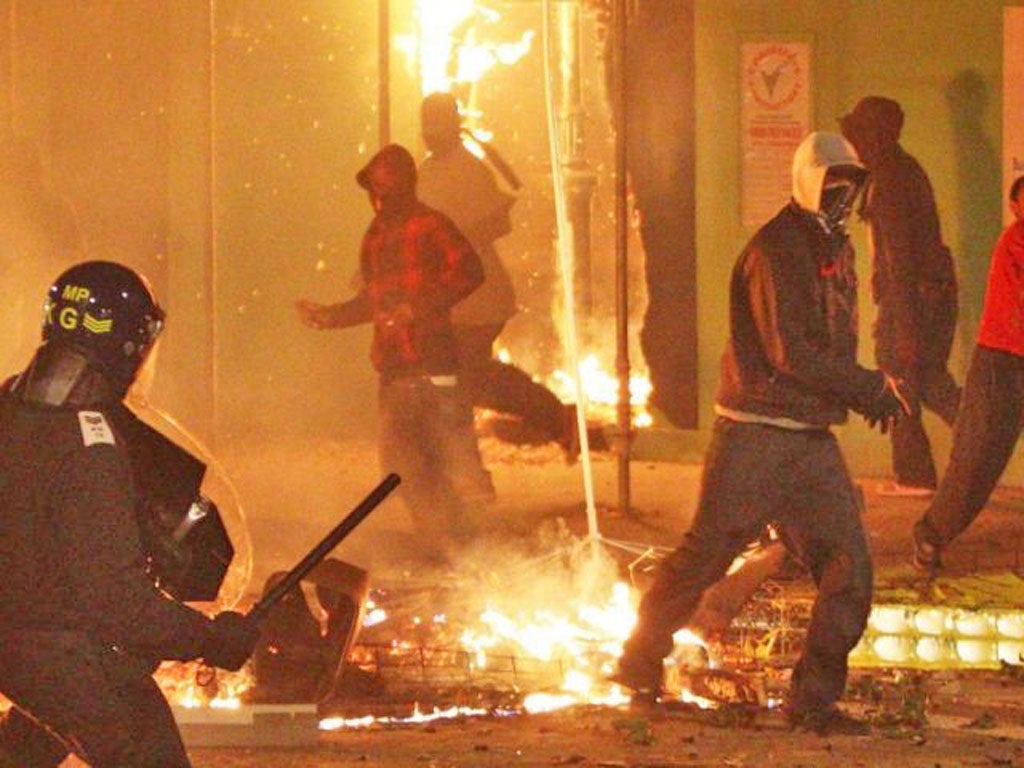For Tottenham's youth, nothing has changed
Joblessness and a mistrust of the police still predominate. By Owen Jones

Mark Duggan's father died earlier this month, his demands for justice unsatisfied. He will never know the circumstances that led Metropolitan police officers to shoot dead his 29-year-old son last August – a killing that sparked one of the biggest outbreaks of civil unrest in English cities for generations.
"The truth is that we're 11 months down the line now since that night, and we still don't know what happened," says Stafford Scott, a race advocacy worker and a friend of the Duggan family for nearly 30 years.
A former adviser to the Met's black gun crime unit Trident – until he quit after concluding "we were just being used to tick a box" – Mr Scott was told of the incident by a police officer on his way to the scene. Initially, the Independent Police Complaints Commission stated that it understood "the officer was shot first before the male was shot"; the IPCC would later admit a "mistake" had occurred. There had been no shoot-out.
The four days of rioting that followed ended with five deaths and some of the worst urban destruction in England since the Blitz. In Tottenham, at least, a bitter history of racism and a deep-seated resentment of the police fuelled an eruption that was as chaotic as it was unexpected.
The fury over Mark Duggan's death was deeply felt, but the grievances that drove the riots were far broader – and continue to fester a year on. Many in the local community simply did not trust the police to begin with, and so it remains.
"The expectation of no justice is a dangerous place to be in," says Symeon Brown, a youth community worker in Tottenham.
Mark Duggan was the fourth black person to die at police hands in the borough of Haringey since the 1980s. Not a single officer has been convicted of manslaughter. The attitude of young people in Tottenham towards the police is shaped by the experiences of their parents and their grandparents. Any negative incident with police officers taps into an intense bitterness passed through families, going back decades.
It is this inheritance that ensures the relationship between black people in Tottenham and the police is "extremely strained", says Ken Hinds, a leading figure in Tottenham's black community and chair of Haringey's Stop and Search Monitoring Group.
Black people are now 30 times more likely than white people to be stopped and searched. A widespread belief that the police are "an occupying force", as Mr Hinds puts it, combined with a lack of any secure future for many young people, lies at the heart of what happened last summer. Neither issue has been addressed.
More than half of young black people are now unemployed. Haringey's funding for youth services has been slashed by 75 per cent. Inevitably it must be asked whether we have seen the last of the disorder. The relationship between the local community and the police seems unsustainable.
Mr Hinds is in no doubt that, if a balance is to be achieved, there has to be a change in police training, which fails to "differentiate between the real gangster and the people who just go about doing their regular business".
Subscribe to Independent Premium to bookmark this article
Want to bookmark your favourite articles and stories to read or reference later? Start your Independent Premium subscription today.

Join our commenting forum
Join thought-provoking conversations, follow other Independent readers and see their replies